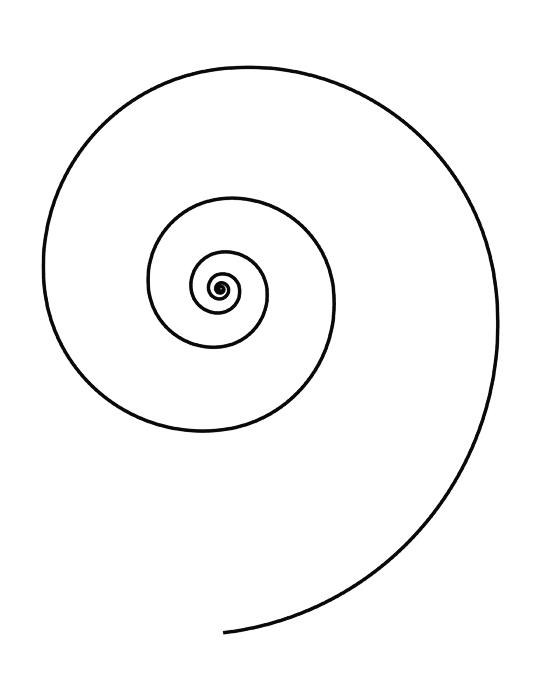|
|
LITR 3731 Creative Writing 2009 Student Poetry Submissions w/ Revision Accounts |
|
Naomi Gonzales
The Struggle
blink. blink. blink.
The scene:
a desk,
a chair,
a fresh blank page
on a computer screen.
blink. blink. blink.
Enter the heroine
she sits,
sighs,
shifts.
Her fingers drum,
her thoughts, adrift.
blink. blink. blink.
The conflict:
Her mind is blank,
stubborn words are balking.
Although the cursor
cannot speak,
its behavior is taunting.
blink. blink. blink.
The action:
it doesn’t stop.
Her leg bounces,
her knuckles pop.
It continues, with its
merciless and
mulish
mocking.
Suddenly—
tap! tap! tap!
The climax:
Inspiration hits!
Ideas spill over;
the room fills
with the clack of
resounding clicks.
tap! tap! tap!
The resolution:
it still blinks,
but heavily.
It still blinks,
and she suspects
that she detects
a slight air
of smugness.
blink. blink. blink.
Poetry Revision Account
The title of my poem, “The Struggle” and its content is actually a reference to how the poem came about. I have always felt that poetry is a major weakness concerning my writing ability, and as a result there was some apprehension about this assignment. I sat at my desk, staring at my blank Word document, and waited for the Muses to grant me inspiration. After a few minutes of patiently waiting and with no trace of inspiration, I began to distract myself with other thing in the room (namely, the internet). Everything was more interesting than my assignment. As I closed out a window on my computer and once again returned to my blank document, I resolved to write and not be distracted any more. Despite this noble resolution, I found myself wanting to be distracted and thinking of everything but poetry, including the blinking cursor on the screen. The more I thought about it, the more frustrated I got—that cursor would continue to blink and blink until I started to write. Then it struck me; THERE was my poem! It turns out that what people tell you about creative writing is true, you write what you know. Because my fear and apprehension about writing poetry was so strong, it became easy for me to write about it. In a way, focusing my energy on writing about something that troubled me was almost therapeutic. As I wrote, I kept in mind what I had read in our assigned reading and tried to work in some of the suggestions. Rather than make each line of my poem rhyme, or create couplets, I worked on finding a way to rhyme without sounding too overt. This helped the overall sense of flow to the poem and it pleased me as well.
I sent this poem to two friends of mine who are also taking this course, Jeff Derrickson and Ryan Smith. Both were very receptive and seemed to really like it, but were not shy about offering some constructive criticism. Ryan suggested that I “keep the lines super short”, as well as “alter the blinks, perhaps. Maybe they'll increase in number, and, thus, irritability, just before the triumphant climax”. He also made a couple of mechanical suggestions such as moving the “m” alliterations “into their own lines like the ‘s’ one” and he said that he didn’t like the “‘infernal’ or the end of the rope part. Just don't quite work.” Jeff also really liked the short lines, he said that they “they echo the blinking.” He also said that he would like to “I'd like to see a bit more ambiguity in the poem...and what I mean is, we know what's going on almost right away. Not necessarily a bad thing, but an "Ohhh" moment couldn't hurt. and maybe more actions from you. The cursor is blink blink blinking, and I really liked how you countered it with tap tap tapping. I guess I'd like to see more of the struggle...it goes from blank to full too fast, y'know?”
After receiving these suggestions, I begin to revise my poem. After reading it over a couple of times, I decided to take Ryan’s suggestion and make each line as short as I possibly could and maintain coherence. I also decided to add in a “blink. blink. blink.” at the very beginning. I opted against making more than three blinks at a time because it didn’t sound very good when I read it out loud with more than that. I changed “hero” to “heroine” and moved the “m” alliterations down as well, just as Ryan had suggested. I decided to cut the two parts that he did not like and I found that it made the poem shorter, which worked well with my shorter lines. I thought about Jeff’s suggestion of adding some ambiguity but I liked the fact that the struggle was obvious. I wrote a screenplay direction at the beginning of each stanza to eliminate any ambiguity, and it gave it more of an expose feel. However, I agreed with his statement that the page goes from blank to full too fast, so I decided to add another stanza that described how great the feeling of sudden inspiration is. I also added a couple lines in the second stanza that had the heroine doing a little more action. The third stanza was also revised to add in some action from protagonist as well as what was there from the antagonist. As for my own revisions, I cut out the section that read, “everything is more/ interesting/ than what she should be doing”, simply because I felt like it was throwing of the rhythm of the poem. I also went through and tried to find some fitting rhymes or alliterations to help the sound when read out loud. I worried about my poem sounding quaint with more rhymes added in, but I think it worked out really well. The final revision I made was to separate the lines into stanzas; I didn’t really give the poem much thought visually—at least not as much as I was giving to it’s oral appeal—and then I realized that it could easily be broken up into stanzas. After putting a space after each “blink. blink. blink.” I realized that the poem looked much more organized, and less run together than it previously did.
Because I don’t really write
poetry, I don’t think that this poem is something that would ever get published
or given much serious consideration. I am, however, proud of the work that I’ve
done and exceeded my expectations of myself concerning my poem-writing ability.
This might be something that I could work on at a later time, however, when I
learn a little more about poetry. As much as I like the fact that the reader
always knows what is going on, I think having an “light bulb” moment would be a
fun thing to try to work in.
Here is the original:
The Struggle
The scene:
a desk,
a chair,
a fresh blank page on the computer screen.
blink. blink. blink.
Enter the hero:
she sits,
sighs,
shifts.
Everything is more
interesting
than what she should be doing.
blink. blink. blink.
The conflict:
although it cannot speak,
it mocks her.
She thinks that
if it would just
STOP
that infernal—
blink. blink. blink.
The action:
it doesn’t stop.
Her leg bounces,
her knuckles pop.
It continues, with its
merciless and mulish
mocking.
She is reaching the
end
of her rope.
Suddenly—
tap. tap. tap.
The resolution:
it still blinks,
but now it is
heavy and full
of words with meaning.
It still blinks,
and she believes
that she detects in it
a slight
air
of
smugness.
blink. blink. blink.




